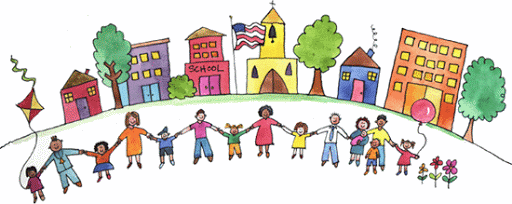Susan Rardon
Rose, Ph.D.
The School Counselor and Parents Walking Side by Side

Our culture is permeated with parenthood myths such as the one of being able to escape the adolescent stage of development mentioned in the previous blog. These, of course hinder the parenting process and can cause them to feel defeated. Accurate information about child and adolescent development helps stressed parents feel relief. So, from my School Counselor experience, I’ve offered some myths you can dispel for your parents to help empower them. I’m sure you are aware of these from your own counseling training, but it’s good to revisit them for your parents.
Myth 1: Good parents do everything they can for their children.
Actually, quite the opposite is true! Good parents encourage their children to do and handle as much as they can for themselves, including the consequences of their mistakes. Particularly during the teenage years, they avoid swooping in to play “Ms. or Mr. Fix-it” and instead take pride in their children’s growing assumption of responsibility for their problems and blunders. Supportive parents actively listen and ask powerful questions: “Do you feel like talking?”; “Is there anything else you can share with me to help me understand?”; “What do you think?”; “What do you need?”; “How can we work this out?” The answers are not as important as the conversation. That is, the adolescent needs to feel connected and that someone is listening and caring. Put yourself in a position to be with your child and listen and wait more; you don’t always have to respond. Simply be there to pose these questions and allow the child to use the parent as a “sounding board” to work these issues out for him/herself.
It has been a source of great happiness for me that I was able to stay home with our children when they were young, but this also caused me some stress when they were ready to go to school. They had never been away from me for any length of time. So, whey my oldest went to Kindergarten, I sat in the back of the room on the first day in case he needed me. After about twenty minutes, he politely came back to me and said, “Mom, you can go now if you want.” It was then that I realized that I needed him, not the other way around.
Myth 2: If we have enjoyed a solid relationship with our pre-adolescent children, then we can count on being the exception to the rule. Unlike the neighbor’s kids, our teenagers will not mouth off, question everything we say, or try anything of which we do not approve.
If only that were true – but it is not! If teenagers do not exhibit any of these behaviors, that is probably more a cause for concern than if they do. On the other hand, the good news is that contrary to the bleak picture painted by much of the media, most teenagers make it through adolescence successfully and remain attached to their parents. The emotional bond between parents and their children remains important throughout adolescence. It is what gives adolescents the emotional foundation to reach out and develop a sense of self beyond the family.
Myth 3: Responsible parents do not loosen controls during the scary days of adolescence – they tighten them.
This approach amounts to throwing gasoline on a fire to put it out! Increasing the number of rules, punishments, interrogations, and lectures from “on high” is like issuing an invitation to your children to go into immediate resistance mode or, at the very least, tune you out. It is not that teenagers do not need limits and guidance. In fact, when parents fail to provide limits, they are apt to conclude their parents do not care enough to offer any limits.
Barbara Minton (2008) provides a good example in Strong Boundaries Create Secure Children. Imagine you are standing on the roof deck of a skyscraper. There are no railings, the wind is blowing and the building sways. Where would you be? You would probably be in the center where you could gather some feeling of security. Now imagine there are high sturdy railings around the edge of the roof deck. You walk over to the railing, push on it a few times to make sure it is sturdy and will hold. Now you feel secure and free to stand by the edge, maybe even look down or out into the beyond. Those railings really changed the experience. You went from feeling insecure to feeling secure just by having a firm boundary around you. It is just this kind of feeling of security your child is after when he challenges you to set firm and consistent limits and boundaries for him.
When you set solid limits and boundaries for your child, you are sending him a clear message that says, “I care about you and I want you to be safe and feel secure as you learn about the world. I am an authority on whom you can always rely.”
Yet, adolescents feel resentful and degraded when parents continue to make top-down decisions and don’t acknowledge their developmental strides by soliciting their input. This does not mean that you are automatically becoming your child’s friend. They have enough friends. You are still the parent. The difference is that you are diplomatically teaching them how to make their own decisions once they are out on their own by allowing them input into the decisions of their life now within the limits of your control and role modeling the thought process of appropriate decision-making within these limits. Limits are the safe zone for your child. Within the limits, the world is safe and predictable. It’s easier for your child to venture out into the rest of the world when he know there is this safe zone you have created for him. (Minton, 2008)
The Truth: More Than Ever, Caring Parents Matter!
Though our young adolescents may appear to be retreating from us, the last thing they want is for us to pull away as well. More than ever, they depend on us to be a “safety net” – the constant they can count on to listen and care in a sea of change. It is in the context of warm, supportive connections with us that our children grow sturdy wings capable of carrying them to confident independence.
References
Minton, Barbara L. (2008). Strong Boundaries Create Secure Children. Natural News, May 10, 2008. Retrieved from http://www.naturalnews.com/023208_child_children_life.html .
I am a school counselor turned counselor educator, professor, and author helping educators and parents to build social, emotional, and academic growth in ALL kids! The school counseling blog delivers both advocacy as well as strategies to help you deliver your best school counseling program.

I'm a mother, grandmother, professor, author, and wife (I'll always be his). Until October 20, 2020, I lived with my husband, Robert (Bob) Rose, in Louisville, Ky. On that awful day of October 20,2020, my life profoundly changed, when this amazing man went on to Heaven. After Bob moved to Heaven, I embraced my love of writing as an outlet for grief. Hence, the Grief Blog is my attempt to share what I learned as a Counselor in education with what I am learning through this experience of walking this earth without him. My mission is to help those in grief move forward to see joy beyond this most painful time.





Useful Links




